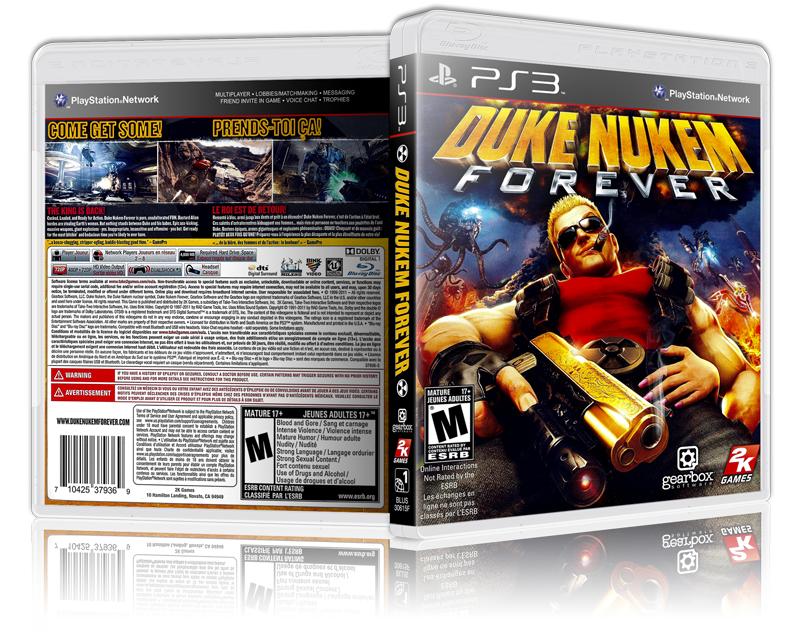How Long Does It Take to Make a Video Game? | Here’s What You Need to Know
In This Article
- Why Does It Take So Long to Make a Video Game?
- Which Video Game Took the Longest to Develop?
- Popular Video Games and Their Production Times
- Welcome to “Development Hell”
- Watch Out for Scope Creep
- How Long Does It Take to Make Your Own Video Game?
- How Long Does It Take to Make Indie Games, Compared to AAA Games?
- How Hard is it to Make a Video Game?
- Project Management as a Tool for Success
- What is a Game Design Document?
- What is the Most Popular Type of Game?
- A Last Word on Making Video Games
Producing a video game can take anywhere from days to months or even years. The game’s scope, budget and the resources available (staff, equipment, software) to produce the game will significantly impact development time. While these factors apply to console, PC, and mobile games, mobile games typically have shorter production cycles.
A mobile game’s production time typically ranges from a few months to five years depending on the game’s complexity.

game
Why Does It Take So Long to Make a Video Game?
Creating an exciting and well-received video game is an art. Exactly how long it takes to produce a video game depends on a large number of factors:
- Is the game being produced by an Indie Studio or AAA? (Indie stands for “Independent” and are small operations, while AAA are mid-to-large size studios with more staff and resources).
- Is it a console, PC or mobile game?
- What game engine (Unity, Unreal Engine, etc.) is being used to build the game?
- How complicated is the game (length, levels, etc.), and how much coding will be required?
- Is the animation hand drawn?
- How high are the production values (the quality of the images you see on screen)?
- Will the sound effects and music come from an audio library, or will they need to be original—tailored to the game’s needs?
- How big is the budget and does it allow for contingencies?
Which Video Game Took the Longest to Develop?
The longest development period for a video game was the creation of the console game Duke Nukem Forever at close to 15 years. Work was started on it in 1996, it was announced in 1997 and didn’t see a release until 2011. It holds a Guinness World Record for the “Longest Development Period for a Video Game”.

video game
After all that production time, Duke Nukem Forever holds only an average metacritic score of 4.9 for PlayStation 3 and a 4.5 for Xbox 360 (both scores are defined as “generally unfavourable” with players).
game
Popular Video Games and Their Production Times
Here are some popular video game titles and their development times:
Game Title Length of Time
Assassin’s Creed: Brotherhood 1 year
Final Fantasy XV 10 years
Uncharted: Lost Legacy 15 months
Grand Theft Auto: Vice City 9 months
Grand Theft Auto 5 5 years
L.A.Noire 7 years
Diablo III 11 years
Prey 11 years
Fallout: New Vegas 18 months
game
Welcome to “Development Hell”
The truth is, when it comes to delays, video game studios can fall into the same trap as movie studios. When a project keeps getting delayed, it is known as being in “development hell’. These delays could be for a variety of reasons: perhaps an actor dropped out, or a prime shooting location is no longer available. Maybe there’s a change in directors or portions of the script need to be rewritten. It could be there’s a problem with the funding, or there’s creative differences between the director and the studio that seem to be taking forever to resolve.
It’s no different with video games. Perhaps the gaming studio changes hands or key personnel have left. Maybe the client requested an entirely new direction for the game based on market conditions or a competitor’s game. There could be software problems or perhaps the project has gone over budget. Maybe funds are now being allocated to another game.

game
Watch Out for Scope Creep
It’s very possible that a delayed video game has experienced “scope creep”. This is where a project’s requirements tend to build up over a project’s lifetime until it becomes unmanageable. For instance, instead of 5 characters there’s now 10, instead of 9 levels, there’s now 14.
Some of the changes may have been made with the best of intentions, but likely they were made too late to be smoothly incorporated into the game’s workflow.
Any number of factors can cause a project to encounter delay after delay. However, with a skilled and organized gaming team (one with proper procedures in place), gaming studios small and large can be quick to act and even anticipate problems before they occur. This will ensure their games are released on time.
game
How Long Does It Take to Make Your Own Video Game?
If you’re thinking of making your own game, then we applaud your ambition. Your success will depend on the budget and resources you have, your education and experience, and if you are going at it alone. If you’re your own studio, and are new to the gaming industry, it’s strongly recommended that you get proper training in video game development and/or animation. Check out our blog for how to become a video game developer or our blog on the best video game design schools in Canada.

game
How Long Does It Take to Make Indie Games, Compared to AAA Games?
Indie (Independent) games are produced by small studios, with smaller budgets, usually employing just a handful of people. Likely many jobs would overlap (such as 2D artist and 3D artist) or some—such as the marketing roles, would be outsourced. For these reasons, typically an indie game takes longer to produce.
AAA studios are mid-to-large size video game studios or publishers who set the industry standard for game excellence. They employ hundreds or even thousands of people around the world. AAA studios include Ubisoft, Electronic Arts and Warner Brothers Games (all of which have studios here in Canada).
video game
How Hard is it to Make a Video Game?
This again depends on the scope of the project and budget, but also the personnel required: are they fully trained? Do they have experience in the type of work that is needed of them? If the plan is to roll out a multi-player game with many worlds and levels, and unique characters, then some or all of the following professionals will be needed:
- 2D artist
- 3D artist
- Writer
- Game Programmer or A.I. Game Programmer
- Game Designer
- Game Artist
- Level Designer
- Texture Artist
- FX Artists
- Sound Engineer
- Producer
- Project Manager
- Production Manager
- Creative Director
- Art Director
- Game Tester
- Marketing Manager (or Director)
- Marketing staff including Social Media Manager

video gamevideo game
Project Management as a Tool for Success
You may have noticed a project manager on the list. The project manager is typically one of the first people involved in the development of a new game. They work closely with the producer to:
- Identify and acquire necessary resources: This includes determining the manpower, software, hardware, and other assets required for the project.
- Develop a budget: They create a financial plan outlining the project’s costs. The budget should allow a percentage—typically 20 or 30% of the total—to cover cost overruns due to project changes or unforeseen circumstances.
- Create a schedule: They establish a timeline with key milestones to track progress.
- Ensure the development of a Game Design Document. This is known as a GDD (see below).
The project manager’s primary objectives are to keep the game within scope, on schedule, and on budget. They do this through regular stakeholder meetings and follow up to ensure each milestone is met.
video game
What is a Game Design Document?
A Game Design Document (GDD) is a blueprint of a video game. It is one of the first documents to be created, and arguably the most important when it comes to planning out a game. It is developed by the game developer or game development team for use by all departments.
There is no standard form for this document. However, every part of the game that needs developing should be included, and it should outline in detail the game’s:
- Concept/Story
- Target Audience
- Objectives
- Characters (number of/type)
- Size of the game world
- Environments
- Gameplay (how players interact with each other and the challenges they face)
- Game Mechanics (the rules that guide the player’s actions and the game’s response to them)
- Game structure and levels
- Art style
- Sound Effects and music
The GDD can be made up of text, diagrams, concept art or any other applicable content to better help the reader understand what is expected in the final game. This document is not meant to be inflexible; it will evolve throughout production.
game
What is the Most Popular Type of Game?
Mobile/social gaming growth has been explosive. Today, mobile/social games lead the gaming industry in terms of popularity and revenue. In 2024, revenue in Canada is projected to reach US$1.19bn in this particular sector of the gaming market.

video game
A Last Word on Making Video Games
If you are considering a school for video game training, look for a program that will also teach you the business of the gaming industry too. If you’ve opened your own mini-studio and have built a great game, but don’t understand how to distribute it or what to do next, then your career could stall.
You will want a well-rounded education that teaches you the creative, technical and business of gaming so that you’ve increased your chances of success in this industry, right from day one.



